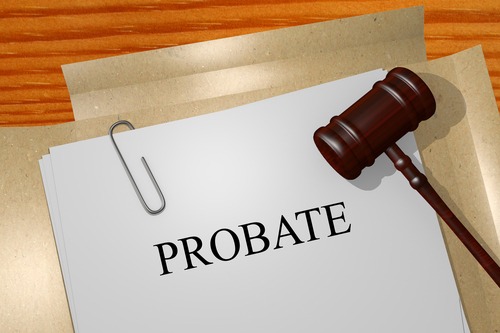Watch “In The Legal Know” with Vincent J. Russo Vincent appeared on CFN Live on…

What to Expect in a Probate Proceeding
If an individual passes away with assets in their name alone and with no designated beneficiary, typically their Will must be submitted with the surrogate’s court located in the county in which the decedent resided. By submitting the decedent’s Will with the surrogate’s court, the probate proceeding is initiated and the process for an individual to obtain the necessary authority to marshal the decedent’s assets.
The probate proceeding is necessary for the court to validate the decedent’s Will and to issue Letters Testamentary to the executor nominated by the decedent’s Will. Letters Testamentary contains a stamped seal from the court and certifies that the decedent’s Will has been validated by the court and that the person indicated on the Letters Testamentary has court authority to act as executor.
A Complicated Process
A probate proceeding is not as simple as submitting the decedent’s Will to the court and waiting for the court to issue Letters Testamentary to the nominated executor. There is a multitude of other documents that must be provided to the court in conjunction with the decedent’s Will. Most notably is the Petition for Probate and Letters Testamentary, which indicates to the court the names and addresses for the beneficiaries under the Will and the decedent’s closest living heirs, and whether any of the beneficiaries or heirs may have a disability. The Petition also lists the decedent’s probate assets and their values.
Waiver and Consent
The petitioner must give notice of the probate proceeding to the decedent’s closest living heirs and the beneficiaries of the decedent’s Will. In the case of the decedent’s closest living heirs, they are entitled to a copy of the decedent’s Will and are afforded the opportunity to object to the probating of the Will if they so choose. An heir can consent to the probating of the Will and waive their right to object to the Will by signing a “Waiver and Consent”. If a petitioner is able to obtain a Waiver and Consent from all heirs and files same with the court, then the court will issue Letters Testamentary to the nominated executor without a court hearing.
Citation
If an heir refuses to sign a Waiver and Consent, then the petitioner must submit to the Court a “Citation” listing all heirs who refuse or fail to sign a Waiver and Consent. The court will indicate a “return date” on the Citation by which the heir(s) listed on the Citation must appear before the Court to inform the Court of their objection to the probating of the decedent’s Will. At the return date, as long as all of the heirs listed on the Citation have been served prior to the return date and no one appears, the Court will state on the record that decree is to be granted, meaning that the will is probated and the Court will issue Letters Testamentary to the nominated executor. Within the following few weeks, the Court will then sign a decree ordering the probate of the decedent’s Will and the appointment of the executor and will issue the Letters Testamentary to the executor.
Discovery Proceeding
However, if an heir listed on the Citation appears at the return date and states their intent to object to the decedent’s Will, the Court will likely refrain from granting decree and schedule a date by which objections must be filed. Alternatively, the Court may schedule a conference between the petitioner and the objectant to ascertain whether a settlement is possible. An objectant may also request SCPA 1404 Examinations, a discovery proceeding unique to the probate proceeding. SCPA 1404 Examinations allow the objectant to seek discovery surrounding the preparation and execution of the decedent’s Will, and the opportunity to depose the attorney that drafted the Will and the witnesses to its execution. The purpose of the SCPA 1404 Examinations is to provide the heir with a preliminary fact-finding opportunity to determine whether an objection would be worthwhile. Once objections are filed, litigation will ensue.
Notice of Probate
Those beneficiaries of the decedent’s will who are not also the decedent’s closest living heirs are only entitled to a Notice of Probate, which only provides notice of the probate proceeding. They are not afforded the opportunity to be heard in court, since they would not have been entitled to share in the estate had the decedent not executed a will.
Guardian ad Litem
If an heir is under a disability or an infant such that they may not be legally capable to protect their interests or appear in court, and a guardian has not already been court-appointed on their behalf, the Court will likely appoint an attorney to represent the heir in the probate proceeding. This attorney is called a Guardian ad Litem and they are tasked with advocating for the incapacitated heir and his or her interest. The Guardian ad Litem will likely seek to speak with the heir, the attorney-draftsman, the family, and the witnesses to determine if the heir’s rights are being infringed upon. The Guardian ad Litem may even initiate or take part in an SCPA 1404 Examination. Once the Guardian ad Litem is content with their fact-finding mission, they will file a report with the Court indicating whether they recommend that the Will be accepted for probate.
As one can see, the probate proceeding is not as simple as one might think. Having an experienced attorney guide you in the probate proceeding is crucial in reaching the ultimate goal of having the decedent’s Will probated and the issuance of Letters Testamentary to the nominated Executor.




This Post Has 0 Comments